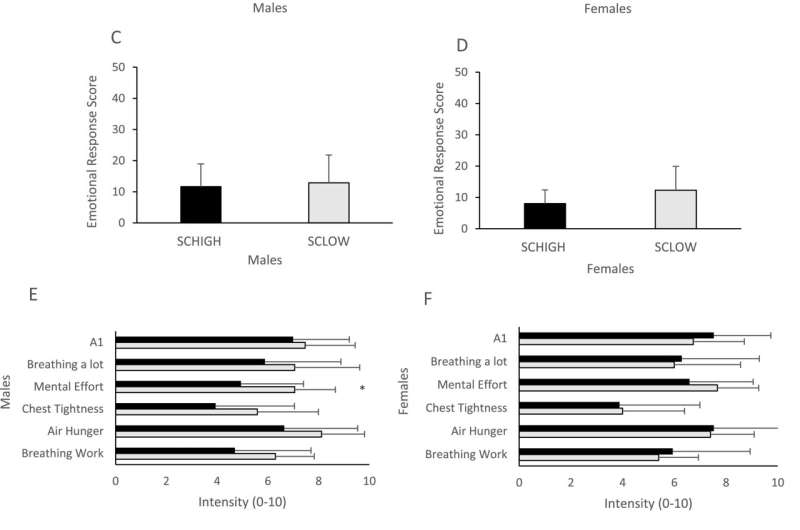This article has been reviewed according to Science X's editorial process and policies. Editors have highlighted the following attributes while ensuring the content's credibility:
fact-checked
trusted source
proofread
People with strong self-control can withstand more physical discomfort, research suggests

Sport scientists at Nottingham Trent University wanted to see how levels of self-control determined tolerance to a task which induced breathlessness, or "air hunger" which is an unpleasant urge to breathe.
As part of the study participants experienced a standardized "rebreathing" challenge, which involves breathing a very gradual increase in carbon dioxide, which is a potent trigger for air hunger.
They were monitored over a period of six minutes or until they reached what they felt was an intolerable level of discomfort.
In a similar way to pain, air hunger—or dyspnea—elicits a desire to alleviate the sensation and self-control is required to endure it.
To assess individual levels of self-control participants completed a questionnaire prior to the study.
The researchers found that males with high self-control were able to tolerate the rebreathing challenge for more than five minutes, almost a minute longer than those with low self-control.
Those with high self-control experienced slower increases in air hunger intensity during the task and reported lower perceived mental effort in relation to the task.
While there was no significant differences among female participants, those with higher self-control tolerated greater air hunger at the end of the challenge, which the researchers argue demonstrated a superior capacity to persist with the task than those with low self-control.
Self-control can be defined as a person's ability to control and override a habit to achieve their goals—such as stopping smoking and drinking or keeping to a diet in order to lose weight.
Exerting self-control is seen as challenging as it requires people to overcome desires in the face of uncomfortable sensations, including effort, stress and pain. Exercise generates these same sensations, as people often have to battle the urge to quit in an act of self-control.
The researchers—the first to look at breathlessness in relation to self-control—argue that it's possible those with high self-control experience slower increases in perceptual effort and discomfort due to habitually ingrained coping strategies.
They say the work aligns with previous reports of individuals with high self-control tolerating painful stimuli for longer than other individuals.
Future work could look at how self-control might influence perseverance with exercise or the symptoms of patients with chronic breathlessness.
"Those with high self-control demonstrated greater tolerance to dyspnea during the challenge," said James Brown, a researcher in Nottingham Trent University's School of Science and Technology.
He said, "It may be the case these people would exhibit superior performance during high intensity exercise due to their better tolerance of general discomfort. If those with low self-control are less successful in tolerating similar sensations then it's possible that this increased perception of discomfort may lead them to avoid exercise.
"Our findings could also help to explain why patients with chronic lung conditions do not always describe their symptoms in the same way, despite being physiologically similar.
"It is interesting that tolerance of the task was particularly significant in relation to male participants. Societal norms in how males and females are expected to react to aversive stimuli, in addition to biological and psychological differences may help to explain why we saw these results."
The study is published in the journal Physiology and Behaviour.
More information: J.C. Brown et al, The effect of trait self-control on dyspnoea and tolerance to a CO2 rebreathing challenge in healthy males and females, Physiology & Behavior (2022). DOI: 10.1016/j.physbeh.2022.113944





















